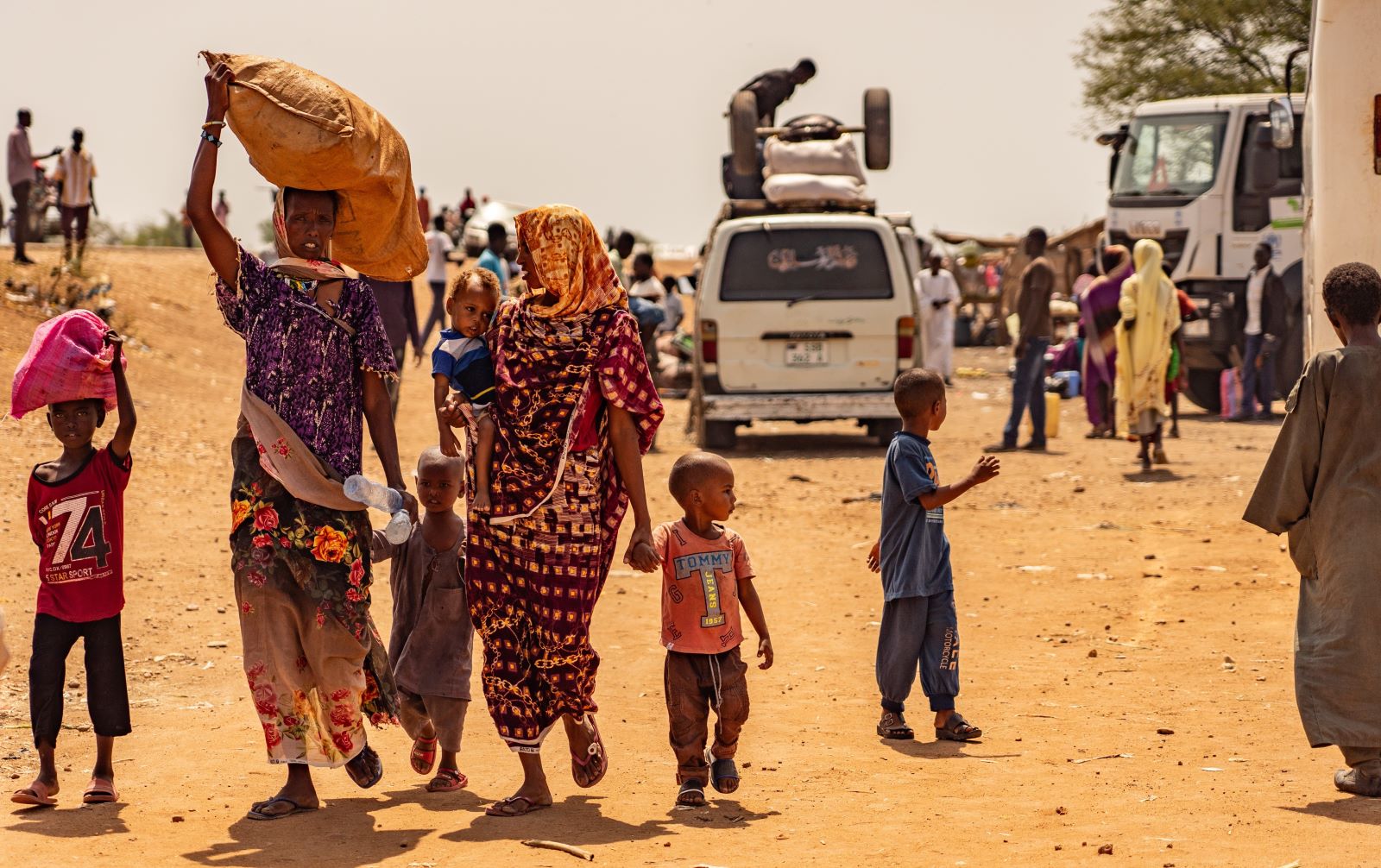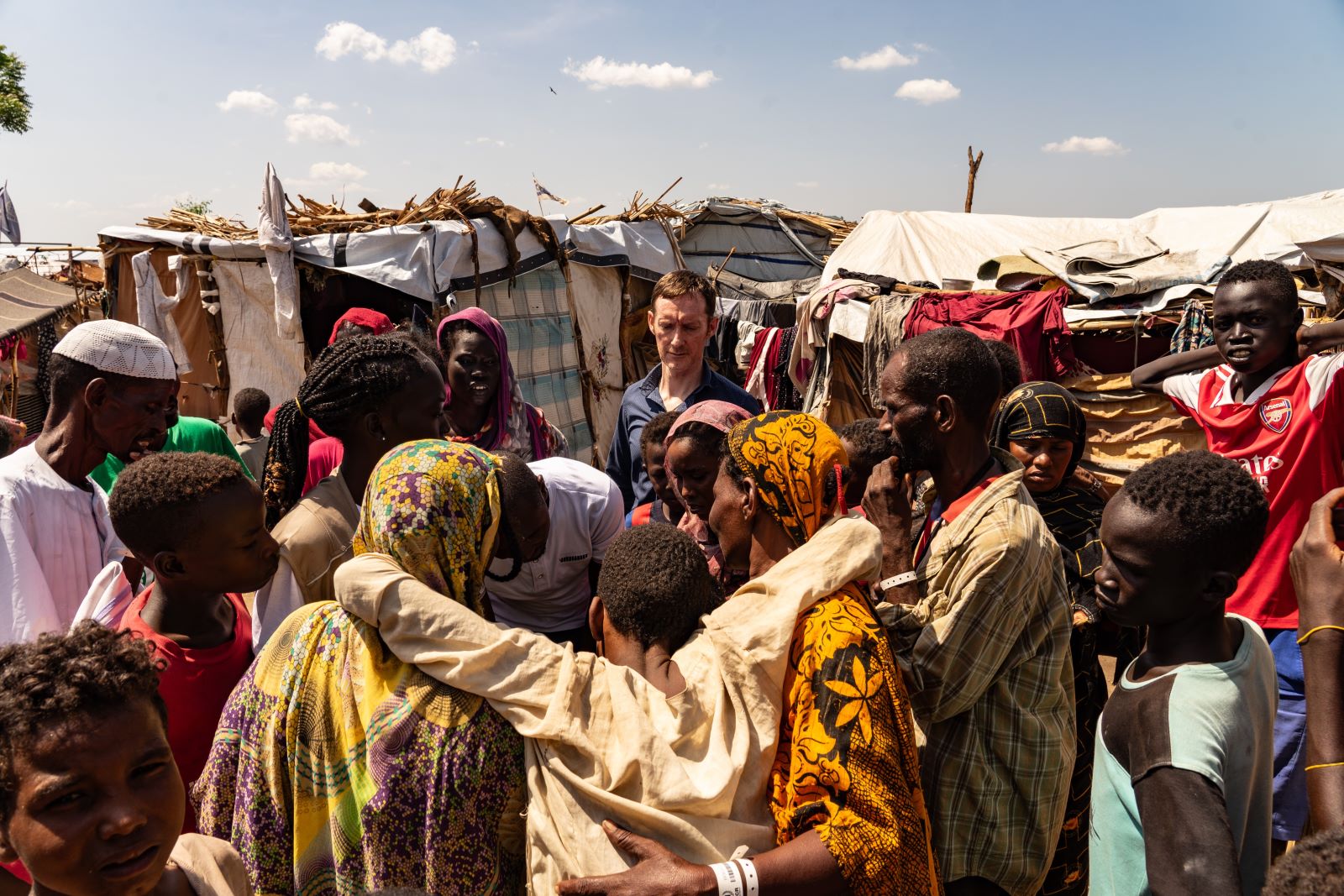
I’m in Renk, South Sudan, in what is known as the transit centre, an enclosed space that receives those fleeing violence in Sudan, a conflict that still rages on. An old man taps me on the shoulder and points to his ankle. Lodged in there is a pellet or a piece of shrapnel. The wound is dry by now. He has clearly been like this for some time, hobbling in silence. It is as if he knows the world doesn’t notice the suffering that engulfs his country, Sudan, like a wildfire. He knows the world isn’t listening. He walks away without complaining.
Humanity has failed the people of Sudan. The rights enshrined within the Universal Declaration of Human Rights are just words for books and policy makers. Article 3, the right to life, liberty, personal security is a fairy tale. From Khartoum, from Darfur, from across Sudan, people run for their lives, from attack, from sexual assault and rape, from torture – thrown into a world of fear, isolation, and confusion – human rights, are only words, found at the end of a pen in some bureaucratic office far from here.
The people of Sudan don’t want to leave their homes, their belongings, friends and family, their lives, their futures, their hopes, their dreams. But they have no choice. In exchange many get the harsh reality of Renk, where food and services are scarce, sickness is rampant, basic health and sanitation facilities are shared between thousands. And there in the middle of it all children run and play. They have experienced the horrors of war, they have lost loved ones, their lives have been turned upside down, yet they have the spirit to play. Even amid such tragedy there is some hope.
Humanitarian organisations are doing all they can, underfunded, over worked, overwhelmed – but they persist, catering for 100 times more people than they are equipped. They push on, giving some flicker of light within the dark desperation. Together, tired and disillusioned, strongly committed and passionate they stand alongside teachers, mothers, drivers, students, cooks, all walks of life, now all equal, all stuck in this limbo together, their lives of yesterday, gone.
I am privileged to work with the staff of the Jesuit Refugee Service (JRS), serving and accompanying people across the East Africa region. Those in Renk understand the challenges the people are facing. They see the horror, the loss, and the pain in the people they care for every day. JRS gives these survivors a kind word, a safe space, a chance to breathe a sigh of relief, for now. JRS provides psychosocial first aid and physiotherapy to those arriving.

Outside the JRS facility 2 women arrive carrying a teenage boy. They are desperate, he is exhausted, he cannot walk, they have just arrived in the chaos of the transit centre after a long journey to escape the fighting in Sudan. They are driven and focused, only concerned about the boy’s condition. A JRS staff member takes them into the JRS centre, a small, hot room but a temporary escape from the madness outside. They receive cold water and a kind smile. They have a moment to settle. For now. These acts of patience, understanding and kindness characterize the staff of JRS and make me proud to be a part of such an organisation.
I sit with a group of amputees, huddled together in 40 degrees heat, sweating but happy to talk, happy to have a space to express themselves, a space to share their challenges, to get some comfort away from the harsh reality they currently find themselves in. This is a JRS counselling group supporting the psychosocial and mental wellbeing of hundreds of arrivals to Renk, where men, women and children all receive the gentle care of JRS staff. Desperation can be seen in its true and pure form in those who were lucky enough to escape Sudan with their lives. JRS accompanies them, at least for now.
Over 7.75 million people (1 ½ times the population of Ireland) have been displaced internally, over 1.5 million people have escaped across international borders to neighbouring countries, over 12,000 have lost their lives. And the numbers keep growing. These people have been denied their basic human rights and stripped of their dignity.
The people escaping Sudan are getting some limited relief for now. But the capacity of humanitarian organisations is being stretched to its limits with rapidly depleting resources. The people of Sudan, within its borders and in the camps just across its borders need to be seen. Their struggle needs to be known. They should not have to suffer.
I want to take this moment to thank those of you for your generosity, help and support these past months. Together we can make sure this crisis cannot be forgotten.
If you would like to make a donation to the Sudan Appeal and continue to support Shane and his team help those in need visit: www.iji.ie/donate or call 01 836 6509
Author: Shane Burke, Deputy Regional Director JRS Eastern Africa

